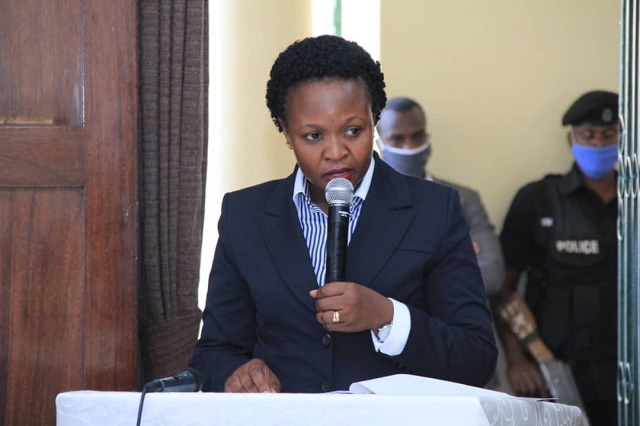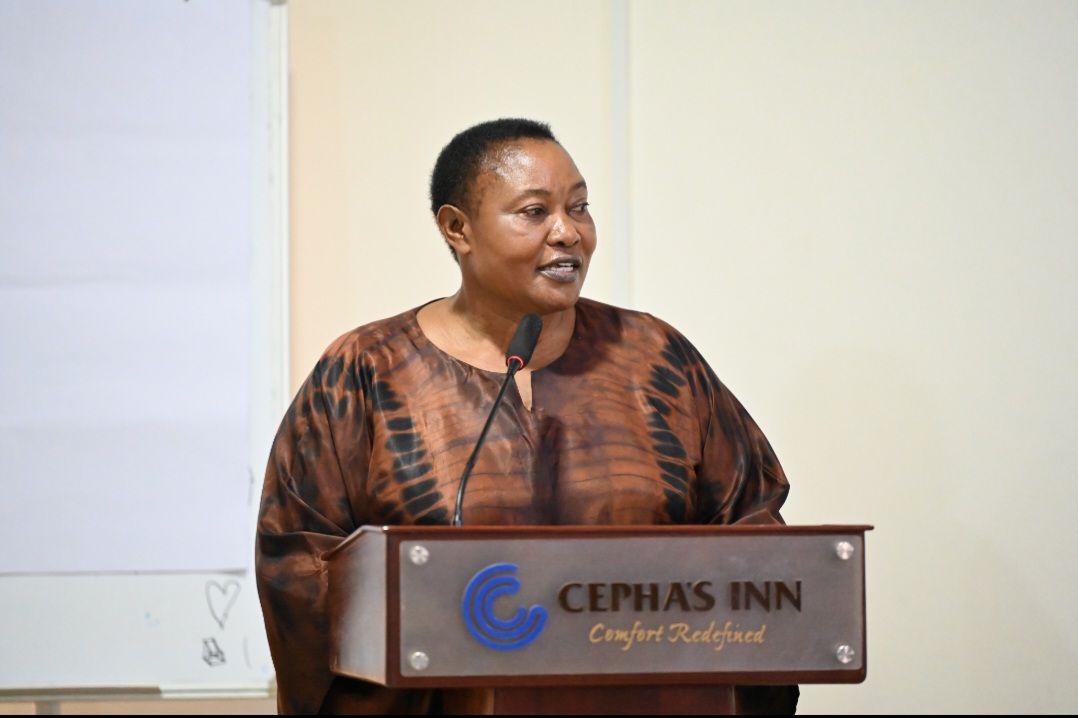The Chief Registrar, Her Worship Sarah Langa Siu has warned that no Judicial Officer at any level is supposed to take an appreciation fee from the public whatsoever.
In the document she issued on Friday evening to clarify the court fees, Her Worship Lang noted that Appreciation/“kasimo” is illegal and is not needed because all Judicial officers at every level are paid enough salary and given many privileges and it’s enough for them.
“Appreciation/“kasimo” is illegal. It is a form of corruption. The salaries paid to the Judicial and non-judicial officers are their appreciation tips by the public. There is no need to appreciate any officer for any work delivered,” she warned.
She also clarified different categories of court fees and explained that court fees are prescribed and mandatory non-refundable sums of money payable at the filing stage of any civil case and they are backed up by a full Judicature.
“The legal regime governing the payment of court fees is the Judicature (Court Fees Rules) Rules S.I 13-1, with the schedule thereof prescribing the amount of fees payable for any prescribed court activity. Court fees are a form of collection of non-tax revenue accruing to the Government. So they go to the consolidated fund and not to Court accounts,” she said.
At every Court Registry/Cash Office/ Notice Board/ Information Desk, there is a Court fee schedule provided for the Court Users to confirm exactly what they are required to pay, depending on the nature of the case or value of the claim.
“All court fees are paid to an approved bank as directed by the cashier, but where banks are inaccessible, fees can be paid to an authorized court cashier. Upon payment of the relevant fee, a receipt has to be issued to the payee by the cashier,” she explained.
She added that after payment of court fees, a copy of the receipt or bank slip has to be placed on the court file. Every document in respect of which court fees have been paid must be endorsed by the stamp of the cashier who shall indicate thereon the receipt or bank slip number.
“It should be noted that every matter of a civil nature filed in the courts attracts payment of court fees unless a party so filing applies to the court for a waiver or variation under the provisions of Order 33 of the Civil Procedure Rules. Order 33 of the Civil Procedure Rules relates to suits by paupers 2 (persons not possessed with sufficient means to pay the fees prescribed by law),” he said.
Free court services
Her Worship explained that Matters/Documents that are administrative for example correspondences/letters do not attract payment of fees. Unlike bail, court fees cannot be reclaimed from the government but can be recovered by a successful party from the losing party in their bill of costs.
In criminal matters, the fees payable are generally minimal and relate to
The filing of appeals and revisions. Filing criminal cases does not at the first instance attract payment of fees.
Court services that are free for users/funded by the Judiciary include; Request for production warrants and handling of administrative matters in criminal matters, Visits to locus in quo which is funded by the Judiciary and are not conducted at the cost of litigants. And Service of court process – such as summons, hearing notices etc. The Judiciary provides funds for Court process servers and services, and motorbikes have been availed in some stations to facilitate this process.
“If anyone has any inquiry or complaint about the payment of court fees he/she may approach the following; The Trial Magistrate of the particular case from which the query is arising or the Magistrate in charge of a Court; The supervisor of the Trial Magistrate, i.e. the Chief Magistrate in the case of a Magistrate Grade One and an Assistant or Deputy,” she said.
She also added that inquiries can also be made at the desk of the Registrar in case of a Chief Magistrate where a High Court Circuit is found; The Deputy Registrar or Assistant Registrar in a High Court Division or Circuit if the issue relates to a case in the High Court; The Inspectorate of Courts, this is a registry situate at the High Court Kampala headed by the Chief Inspector of Courts; or The Chief Registrar whose chambers are at the High Court.
Meanwhile according to Her Worship Langa, for the past four Financial Years as a result of enhanced sensitization, there has been a steady improvement in Bail Refund payments in claims.
For example, in the Financial Year of 2019/20 Bail refund payments totalled Shs1, 365,250,000, in F/Y of 2020/21 it was Shs1,317,020,000, in F/Y of 2021/22 it increased to Shs1,753,980,000 and in F/Y of 2022/23 it decreased to Shs1,680,811,000.
Do you have a story in your community or an opinion to share with us: Email us at Submit an Article








